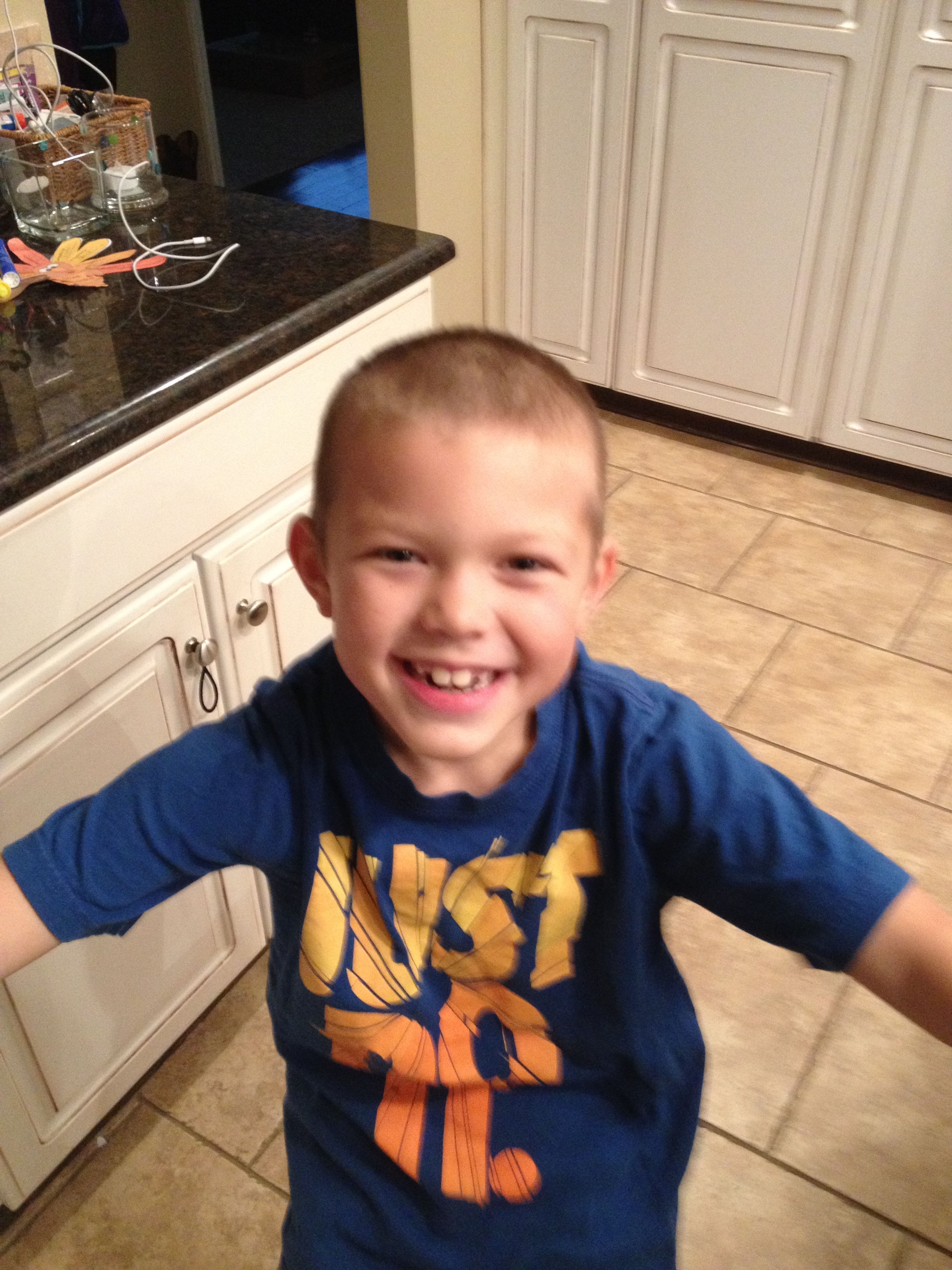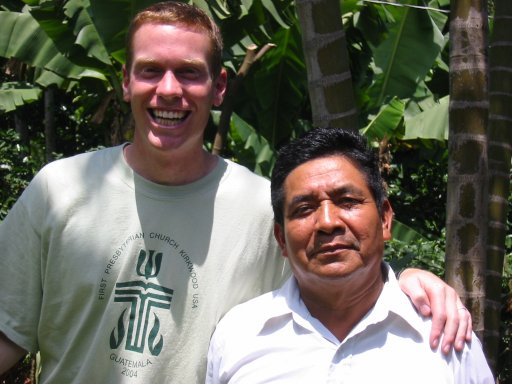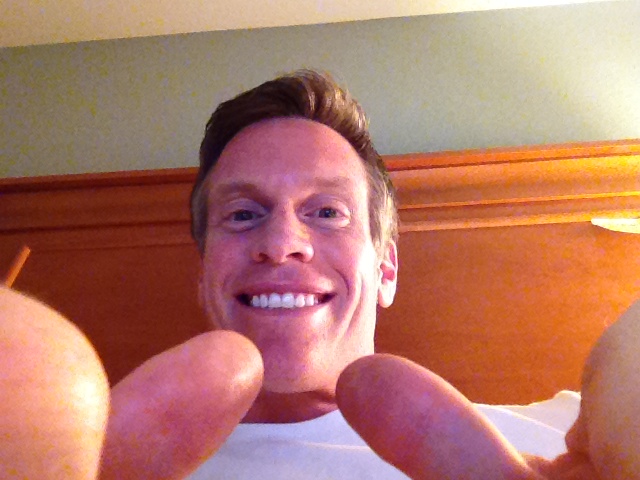12 When he had finished washing their feet, he put on his clothes and returned to his place. “Do you understand what I have done for you?” he asked them. 13 “You call me ‘Teacher’ and ‘Lord,’ and rightly so, for that is what I am. 14 Now that I, your Lord and Teacher, have washed your feet, you also should wash one another’s feet. 15 I have set you an example that you should do as I have done for you. 16 Very truly I tell you, no servant is greater than his master, nor is a messenger greater than the one who sent him. 17 Now that you know these things, you will be blessed if you do them. John 13: 12-17
“You ready to go to lunch?” Gabby asked.
“Not yet.” I said. “I just need to pick a homeless man’s toenails out of my hair.”
She nodded in agreement. Like it was no big deal.
It was not a typical conversation. But today was not a typical day.

I beg forgiveness in advance for diving into a brief discussion of our year as missionaries in Guatemala. I know I’ve told the story a million times. Like the million times your dad told you how he used to be so poor that his mom packed baked bean sandwiches in his school lunchbox. OK. So maybe that’s just my dad. But the story bears repeating anyway.
About ten years ago, after spending roughly a decade in the corporate world, Gabby and I went a little looney, sold the house, sold the cars, and spent year serving as missionaries in Guatemala. Unfortunately, we didn’t save million orphans or cure malaria, but we did live with an amazing indigenous family of Mayan descent and learned more about the world than we could have ever imagined.
Prior to quitting our mission year, Gabby and I hadn’t done a lot of service, so when you embark on such a life-altering adventure your first shot out of the gate, it can leave you feeling a bit like Norah Jones whose first album won eight Grammy awards.
“That’s nice and all. But what have you done lately?”
The answer? Not much.
Instead of feeling content with what could arguably be called a selfish year of service (yes, you read that right), I am left wondering what else I could do. How can I truly be selfless? What opportunities exist that could be God-centered enough to help rekindle a deep spiritual connection, while at the same time be challenging enough to scare the Baby Ruth out of me like Guatemala did?
I got my answer a few weeks ago in an email from my friend Jeff.
“I have a great opportunity for you service-minded types. Nashville’s third annual Project Homeless Connect is coming up. I am coordinating Room In The Inn’s foot clinic, and I need volunteers to help me. Volunteering would entail offering basic foot care–washing feet, clipping nails, and giving a foot massage. For anyone who is a little squeamish about feet, there are ways you can help as well. It really is not as bad as you might think.”
I had to read the email twice.
Is this a God-centered opportunity? Sure. The Bible says that Jesus performed just such a spa treatment for his disciples, complete with exfoliating brush and tea-tree oil (Book of John, paraphrase).
Is this a challenging/scary opportunity?
It depends.
I’m not sure where you stand on feet (pun intended). If you are a nurse, podiatrist, or hiding a foot fetish, this is right up your alley. You probably wouldn’t think twice. You could just go on auto-pilot for the day and handle hundreds of feet like a baker handles buns.
But me?
I have a long list of fears. Ignoring my OCD compulsion with the number 7 and multiples thereof, allow me to showcase just a few of them here. They appear in descending order, from heart-stopper to rash-inducer.
1. Eating food on or past the expiration date
2. Not having lip balm
3. Being trapped with a bad smell (except my own B.O., oddly enough)
4. Going a full day without showering
5. Hanging Christmas lights on the tallest gable of our house
6. Clipping the kids’ toenails
7. Forgetting to put on deodorant on a muggy day
7a. Tapioca pudding
7b. Being sweaty without a change of clothes nearby
7c. Confronting my wife about something when she’s stressed
As you can see, five or six of these have to do with hygiene in some form. And this service opportunity would have me facing several fears head-on. Then I read something else Jeff sent us.
“Organizers are expecting between 1,500 and 2,000 people to receive important services that will help them on their journey toward obtaining housing. The foot clinic can be an important part of this process. Physical needs are met, but more importantly it is an experience of sanctuary for our guests, a place where they are cared for as individuals and experience a few moments of unconditional love and respect that can help sustain them in the difficult experience of homelessness”.
Here I am, worried about my crazy phobias while a human being. Flesh and blood. Has no home. No roof. No place to feel safe.
For me, it now becomes a simple question to be answered.
Is love stronger than fear?
I sent Jeff an email to let him know that Gabby and I were in for the foot clinic. Granted, I hadn’t confirmed this with my wife, but I figured it was only fair that I sign her up for the opportunity since she is the strong half of our marital union, and strangely attracted to physical abnormalities of all sorts. A menagerie of corns and calluses could be right up her alley.
The day arrived, and Gabby held my hand as we walked into the building.
“Deep breaths,” she said. “No big deal.”
As soon as we entered, I immediately excused myself to the bathroom. Gabby supported me by stifling a giggle.
The event center was a large exhibit hall. It was an incredible sight. Different services and ministries had their own designated area. There was a place to get your hair cut. Another area for medical questions. A section for legal services. A place to get new ID’s. All things to help the homeless get back on their feet (pun intended). As we looked around the hall, the most startling thing is how it would have been next to impossible to distinguish the homeless from the volunteers had it not been for our free, brightly-colored T-shirts.
Children of God.
Then we found Jeff. He gave us a brief orientation. I figured I would start small. Maybe help people fill out the intake form then work my way up to washing the trimmers and pumice pads between sessions. You know. Ease my way into it.
Thirty seconds after removing my coat, Hillary, a volunteer coordinator, tapped me on the shoulder.
“We have a space open for foot care. Can you help out?”
Ding Ding! Round One begins. And Fear just hit Love below the belt!
My heart began to race. The next thing I knew, I was seated on a stool in front of a metal folding chair. On the floor was a washtub filled with warm water. Another volunteer came by and gave me three towels, rubber gloves, nail trimmers, a pumice stone, a nail file, soap and lotion.
“Do you need a cheat sheet?” he asked.
Speechless, I simply nodded.
He brought me the instructions. I tried to commit them to memory.
- Soak feet.
- Wash feet with cleanser.
- Clean out around and under toenails with cuticle stick. Really?
- Clip nails. Be especially careful with diabetics.
- Apply callus remover and scrub with pumice stone to remove calluses. Not sure about that.
- Massage feet with lotion.
- Try not to look like you’re going to soil yourself.
OK. So the last one was mine.
When I was finished reading, he asked,
“Are you ready?”
I nodded.
“Then I’ll go bring you a client.”
I said a prayer. Not the prayer you might think. I prayed for God to settle my nerves. And perhaps, if it wasn’t too much trouble, he could do this by sending me a client with dainty, pretty feet. Like Jennifer Aniston. Or Halle Berry. Or Ashley Judd.
I’m not picky.
“Hi, this is Raymond.”
Raymond did not bear any resemblance to the aforementioned women, and had feet the size of canned hams. I shook his hand and gestured toward the chair before me.
“Make yourself comfortable.”
As Raymond removed his shoes, I asked him if he had any special requests or spots on his feet that needed special attention. Sore tendons? Twisted ankle, maybe?
As he removed his white athletic socks, he pointed to piggy #2 on his left foot.
“You see that one right there?”
“Yes,” I replied, gazing at a thick, discolored nail.
“That one has a fungus on it. If you could smooth that one out a bit, I’d appreciate it.”
Fear staggers Love with a right cross to the jaw!
I got right to work. Raymond and I chatted a bit. He was in construction, but lost his job in the economic downturn. Now he didn’t have a place to live. As I scrubbed his size twelves with Cetaphil cleanser, I smiled at the sight of myself. Here I was, a goofy, skinny, pale corporate consultant seated opposite a giant, homeless guy, caressing his sudsy feet. Not an image I could have conjured up just a few days before. But now, it had an air of normalcy to it.
Love stands up straight, ready to take on Fear once more!
Normal, until I started cleaning with the cuticle stick. I know my own feet can harbor a veritable treasure trove of goodies beneath each nail. But prospecting for gold underneath a stranger’s toenails is another adventure entirely. The big toe was particularly awe-inspiring.
Love takes an uppercut to the ribs!
After the cleaning was the clipping. This wasn’t a huge job, as Raymond took decent care of his feet. I moved on to buff out some rough spots with the pumice stone, and smoothed out the offending fungal nail with a file. Next up was the massage, and Raymond was very appreciative.
“Man, I spend a lot of time on my feet walking from place to place. This is just what I needed.”
Twenty five minutes after we started, Raymond was breathing a sigh of relief, looking more relaxed than before. He gathered his things and shook my hand.
He left with, “God bless you, sir,” and slowly walked away.
Ding Ding! Round one is a draw. The fighters move to neutral corners.
With one client under my belt, I was gaining confidence. The churning in my belly was reduced to a gentle kneading.
My next client was Kathy. She was a heavy-set woman from Florida with brown curly hair who walked with some effort. She had only been in Nashville for the past two months, and was living at the women’s shelter. She had come to town to look for work and escape unspoken troubles. She was chatty at first, but as time went by, I caught her leaning back in the chair and closing her eyes. A soft smile drew across her cheeks.
“I don’t know if I ever remember someone taking care of me like this,” she said. “This is fantastic.”
Love takes round two!
Thirty minutes later, I was tending to James, a wiry Tennessee native. Compared to Kathy and Raymond, his feet felt like they were filled with helium. James admitted he had never had anyone tend to his feet before. A proud man, he mentioned several times how he took very good care of himself, and was only sitting here because a friend recommended it. He talked about losing his factory job in the recession and living at the mission.
“I can’t go home and stay with my family. I just get in trouble there. If I can stay away from them, I’m much better off.”
In that moment I realized how tough this must be for the homeless. During the good times, you have a steady job and the means to put a roof over your head. Then something happens and the rug gets ripped out right beneath your tired feet. Now, you must swallow your pride and admit you can’t do it alone. I can only imagine how much I would resist that. Heck, I have a hard time admitting when I’ve had a bad day, much less anything worse. But here was James, reluctantly accepting grace. I easily saw myself in his chair.
Fear is knocked on its heels in round three!
It was nearing lunch time, so I mentioned to the coordinator that I would take one more person before a quick break to grab a bite. James left with a handshake and I started to replenish my supplies.
“Hi. I’m Charles.”
Charles was about 6’3” with plenty of gray hair on his temples. I’m not sure of his age, but his skin showed that whatever years he had spent on the planet had been hard. He spoke in a rapid-fire staccato. He was missing several teeth, which gave him an interesting inflection that colored his speech with a mixture of lisp and drawl.
“Hey Charles. Nice to meet you. Take off your shoes and get comfortable. I’ll be right with you.”
As I said this, Gabby came by and tapped me on the shoulder. She had just finished with a client and heard that I was about to take a lunch.
“I’m just going to do one more and then I’m taking a break,” I said. “Could you get me a couple of fresh towels?”
Gabby obliged. I turned back toward Charles, who had removed his shoes.
“I want them two things gone!” He said with authority as he pointed to his left foot. When I looked down I couldn’t believe my eyes.
Just when Fear looked like it was down for the count, it connects with a right hook to Love’s jaw. Down goes Love! Down goes Love!
“It’s been years since I’ve done anything to that one there,” he said.
Years?
He wasn’t kidding. He touched the nail on his big toe, which, like all the other nails, had outgrown the limits of his shoes and retreated downward, covering the front of every toe like giant thimbles as thick as wooden spoons. The only thing that prevented them from growing even more was that the bottom of his foot had acted as a file of sorts. Otherwise, the nails would have covered the soles of his feet.
On his second toe was a growth the size of a marble. As he touched his big toenail and the growth, he repeated, “I want them two things gone.”
The expression on my face looked as if I had just seen a manatee riding a unicycle. Completely dumbfounded.
And the referee is counting! 1, 2, 3, 4 ,5 ,6 ,7 ,8… Is this the end of Love?!
Gabby came back with the towels. She saw Charles’ feet and said in a tone of great understatement,
“I’ll go help with intake. Let me know when you’re done.”
I turned toward the woman seated on the stool at my right. She was a registered nurse who had also been providing foot care throughout the morning. She heard my conversation with Charles.
“Anything special I need to do here?” I begged, secretly hoping she would take my case as a research project. She only giggled at my novice fear and said,
“Nothing special. Just trim the nails as best you can, and get a few medicated corn pads to help with the bump there.”
And Love somehow staggers back to his feet!
Charles seemed pleased with the response and settled in, soaking his feet in the tub. Meanwhile, I was petrified. I scrubbed his feet with the special soap, hoping against hope that the concoction was something akin to Toenail Nair, which would just make them disappear in a flash of light.
No such luck.
After the soap, I was supposed to use the cuticle stick to get under the nails. I looked down at the poor stick, and I heard it faintly whimper, so I opted instead to work off the calluses with the pumice stone to allow each foot a bit more soaking time.
The rough side of the stone was like 100 grit sandpaper. Before I went to work, I asked Charles, “Let me know if this is too uncomfortable for you.”
He replied, “Ain’t nothin’ gonna’ hurt these big size thirteen canoes, boy. You doin’ a fine job. ”
I worked his foot like an auto body mechanic sanding paint off a Buick. The pumice wilted under the pressure. I commented to Charles,
“I think I may rub off a size or two of foot here Charles. When you walk out of here, you may be an eleven and a half.”
He laughed at the comment, and added, “Sho ‘nuff. It’s about time them feet had some work done on ‘em. This feels real good. I really appreciate you doing this.”
When the scrubbing was done, it was nail time. I steadied myself to tackle my fear head-on. When I grabbed the toenail trimmers, I saw the nurse glance my way. I believe she was watching to see if I would fold under the pressure.
I wasn’t sure exactly how to handle it. Because of the unique growth of the nails, there was no way to just take the nail off in one clip. I would have to whittle away at them, taking off a tiny chip at a time. The trimmers were the kind that look like a pair of pliers. I grabbed them firmly in my right hand and settled in on the first chunk of the first nail.
I may not be the strongest man in the world, but I’ve done my fair share of working out. Still, when I pressed down, the trimmers merely made an impression. Like I was notarizing his big toe. It didn’t budge.
Refusing to give in, I grabbed on with both hands and clamped down. There was a sound like someone snapping a pencil and the first chunk of nail flew off and hit the nurse in the cheek.
“Hold on there now!” Charles joked. “I don’t wanna’ be responsible for hurtin’ nobody.”
What’s this?! Love lands a right cross to Fear!
I had to laugh, and so did the nurse. I continued chopping away at the nail. As Gabby can attest, the big toe alone took four minutes. Stuff was flying everywhere. The area around my seat looked as if someone had been carving one of those bear statues out of an old stump. Toenail chips hit me in the eye, the cheek, and the lower lip. My waxy hair care product, an unfortunate choice for the day, was trapping slivers in my coif. My hands got tired.
And Fear takes one on the chin! Up against the ropes! Will this be the end?!?!
As I worked, Charles continued to voice his appreciation, and an occasional hint that my grip might be a bit rough.
And God was blessing it all. Beauty for ashes, as they say.
Because as tough as this was for me, I can only imagine that it was ten times as difficult for him. If you have no money and no place to live, the last thing you’re concerned about is buying a pair of nail clippers. And when you look like Charles and live on the street, it’s likely that you could go weeks, if not months, without feeling the physical touch of another human, save for an occasional police officer lifting you off a bench and pointing you elsewhere for the night.
Can you imagine?
I can.
And it must be very lonely. Enough to make you feel less than human. Like I had treated Charles. As a pair of feet instead of a man with a soul.
When Charles’s feet were back to normal, I felt beads of sweat on my forehead. He looked at my handiwork and said,
“Those babies haven’t looked that good in years! Thank you!”
“We’re not done yet, Charles,” I reminded him. “We save the best for last.”
I poured peppermint-scented lotion into my hands, and got to work on the feet. For ten minutes they soaked up a quarter-bottle of the stuff. He leaned back in the chair, closed his eyes, and sighed. It was the sound of pure peace. Breathing in a pleasant scent. Both of us drenched in human kindness. Bringing a subtle smile to my face as fear melted into the floor. Proving once and for all, that when you push yourself to the edge of your faith.
No matter the odds.
Love wins. Every time.
* Enjoy this post? Follow us on Facebook!















































